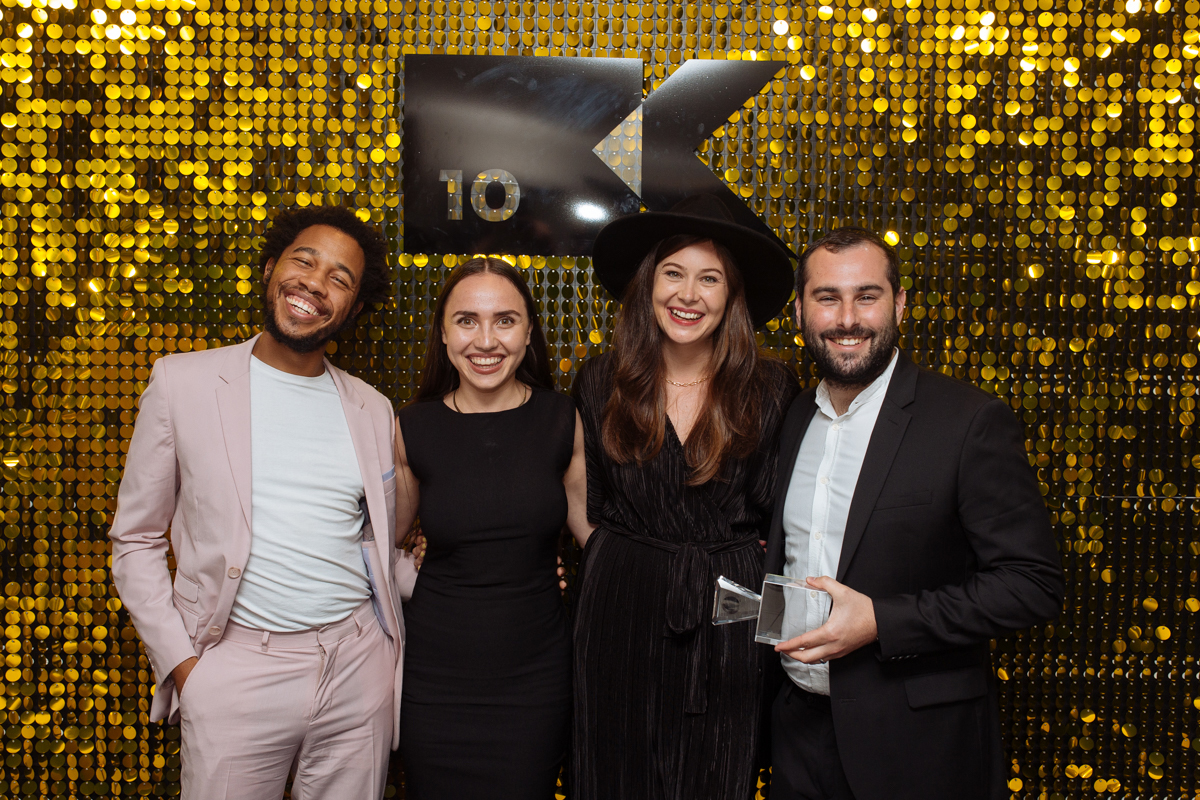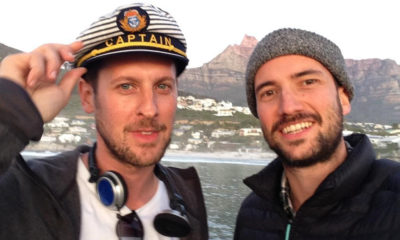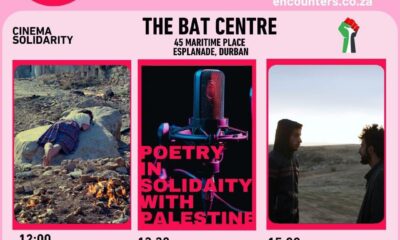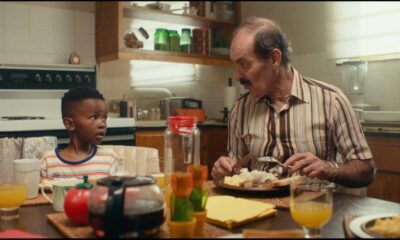
Lifestyle

Filling a void with an Afrikaans short film
It’s not often that two Jewish filmmakers win a prize at a prestigious Afrikaans film festival, but this was the case recently for Jordy Sank and Gabriella Blumberg of Sanktury Films. Hot on the heels of their globally acclaimed I Am Here, their short film Leemtes en Leegheid premiered at the kykNET’s Silwerskermfees, where it won Best Short Film, Best Script, and the Audience Choice Award.
In this power duo, Sank co-wrote and directed the film, and Blumberg produced it. It all started when they entered their short film idea into the kykNET Silwerskerm short film competition.
“We were excited as our concept kept making it into the next round, then the next round, until it got shortlisted and was finally chosen as one of the 17 short films that they would develop and fund,” says Sank.
The idea for the story came from spending so much time with the subject of their last project, I Am Here, “our award-winning documentary on the life of 98-year-old Holocaust survivor Ella Blumenthal. The main character in this story, Magdaleen, is in her later years and struggles to process the loss of her husband with whom she spent the majority of her life,” he says.
“Magdaleen, a recluse in her 80s, is so stricken with grief and the loss of her husband that she creates an imaginary version of him to fill the void in her life. She feels as though she’s drowning in waves of loss, and every day, she’s battling to make her way to the surface. ‘Leemtes en Leegheid’ means ‘voids and emptiness’ which perfectly describes the despair and grief that Magdaleen experiences in this film. The English title of the film is ‘A Void’,” says Sank.
Afrikaans isn’t his first language, but he can understand a lot more than he can write. Writing a film in Afrikaans was a challenge, so “I paired up with an Afrikaans friend that I grew up with, Terence Makapan, who is a published playwright and phenomenal actor. We worked on the story and did all the first drafts in English. Closer to the end of the process, Terence translated it into Afrikaans. We worked with the actors during rehearsals to make sure that the dialogue flowed and was more nuanced for their performance.”
Besides the actors, the crew was mostly English speaking, “so I thought initially that that would be the biggest challenge, but the team worked so well together”, says Sank. “You could feel the brilliant performances without even needing to understand a word. That’s so true of the content we watch today. We’re so accustomed to watching international films and series with subtitles, but you’re still able to feel the depth and emotive performances even though you may not speak an iota of the language.”
Their biggest challenges were budget and location. “As we shot this last year during COVID-19, there weren’t many people that would let us film in their old-fashioned apartments, and the aesthetic of an 80-year-old’s flat is incredibly specific,” he says. “So we eventually found a blank canvas and through incredible production design, were able to create our granny’s apartment.”
Asked why this story was meaningful to them, Sank says, “The themes that we explore of ageing, love, and loss are universal. Ultimately, we all know what it’s like to lose someone we love, even more so due to the pandemic. This story is an exploration of loss, loneliness, and acceptance, and we hope that our audience gains from watching Magdaleen’s grief, and how she’s able to attain catharsis.
“On a more personal note, I lost my grandfather at the beginning of last year, and the grief I felt was tremendous. Throughout making this film, I couldn’t help but think of my grandfather and how my grandmother, similar to the character in this film, is figuring out how to continue with her life without him by her side. So I think I had a deeply rooted personal approach to the story, characters, and tone of the film.”
Sank’s other set of grandparents were both “Boerejode”, hailing from Vredenburg and Beaufort West. “I grew up hearing their many stories of growing up in the country and their relationship with the Afrikaans community there. I believe my late grandfather would have been proud of me for making a film in a language he held so close to his heart.”
The film premiered at the Silwerskermfees in Cape Town at the end of March 2021, where they won some of the top awards. “It was extremely gratifying to see that the audience and jury were both equally moved by the film and that it resonated with both of them so deeply.
“We had people in the industry constantly coming up to us and telling us how they loved the short film. I was approached by South African actress Antoinette Louw, who raved about it. So we were incredibly well-received at the festival, and people were really drawn to our story.”
Going to this prestigious Afrikaans festival, the pair felt nervous that “two non-Afrikaans-speaking Jews would stick out like a sore thumb, or that it would be difficult for us to be accepted”.
“We saw ourselves as a ‘dark horse’, and didn’t think we would win any awards, but it was prestigious enough just to be there,” they say. “We were shocked when our film was called again and again and again. We were welcomed and accepted by the festival and filmmaking community there beyond our wildest expectations.”
Meanwhile, I Am Here is still making an impact around the globe. “It recently had its United States release in more than 85 theatres across the US and it screened throughout Australia as a part of the Jewish International Film Festival. We’re working with the Johannesburg Holocaust & Genocide Centre on an educational pack to accompany the film for teachers and pupils,” says Sank.
They continue to hit the ground running. “We’re planning to pitch a few feature-film projects to broadcasters shortly,” Sank says. “Along with our win for Best Short Film, we received a special prize from the NFVF [Nation Film and Video Foundation] of an all-expenses-paid trip to attend the Berlin International Film Festival’s Co-Production Market next year, one of the top film festivals in the world. It’s such an honour to receive this and to be able to connect with filmmakers and content producers from around the world.”
To young and budding Jewish filmmakers, Sank says, “There’s so much richness in our incredible country and its many cultures, languages, and people. There are so many remarkable stories that need to be told, and that we can enrich with our own Jewish heritage and perspectives.”
Blumberg, who was getting married at the time of this interview, says, “We have seen how this story of grief and isolation has resonated so widely, and we hope it brings comfort and closure to those who watch it. We’re honoured that the film received such high recognition at Silwerskermfees, and we hope it travels to audiences around the world.”
South African audiences can watch the film on DStv Now and Catch Up.










